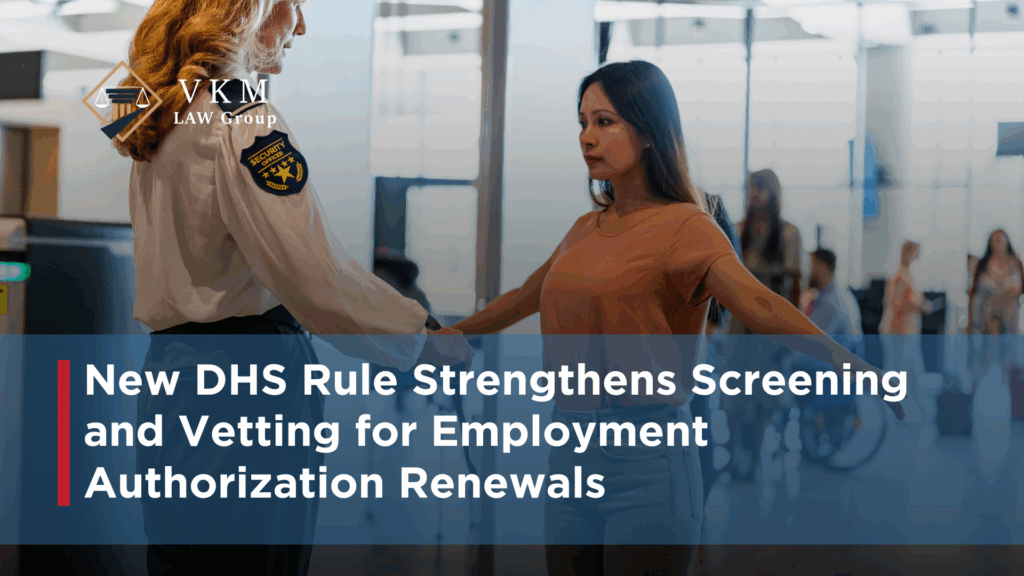
The U.S. Department of Homeland Security (DHS) has issued an interim final rule that changes how Employment Authorization Document (EAD) renewals are handled. Effective October 30, 2025, DHS will end the automatic extension of EADs for certain noncitizens who file renewal applications, with a renewed focus on enhanced vetting and national security protections.
What This Means
Under the new rule, noncitizens applying to renew their Employment Authorization Documents will no longer receive automatic extensions once their renewal is filed. Instead, each renewal will be reviewed individually, allowing U.S. Citizenship and Immigration Services (USCIS) to conduct more frequent background checks and strengthen fraud prevention measures.
There are limited exceptions, including:
- Automatic extensions required by statute
- Temporary Protected Status (TPS)-related employment documentation, as outlined in future Federal Register notices
DHS’ Focus on Security and Compliance
According to USCIS Director Joseph Edlow, this change represents a “commonsense measure” to ensure that all employment authorization renewals undergo thorough screening before approval. The policy shift reflects a renewed emphasis on balancing workforce needs with national security priorities.
“Working in the United States is a privilege, not a right,” said Edlow. “This rule ensures that every individual holding employment authorization has been properly vetted to protect the safety and security of the American public.”
How This Impacts Applicants
For individuals and employers relying on timely EAD renewals, planning ahead is now more critical than ever. USCIS advises applicants to:
- File renewal applications at least 180 days before the current EAD expires
- Ensure all documentation is accurate and complete upon submission
- Work with a qualified immigration attorney to avoid lapses in work authorization
Failing to file early could result in a temporary employment gap, as automatic extensions will no longer apply after October 30, 2025.
Why This Matters for Employers and Employees
Employers in sectors like technology, healthcare, and manufacturing where many professionals hold temporary work authorization should review internal compliance policies now. Without automatic extensions, HR departments will need to closely track expiration dates and ensure renewal applications are submitted early to minimize disruption.
The Bottom Line
This policy update reinforces the federal government’s commitment to public safety and integrity in the immigration process. While it adds an additional layer of review, it also emphasizes the importance of timely preparation and legal compliance for both foreign workers and U.S. employers.
At VKM Law Group, our team of experienced Immigration Attorneys in New Jersey can help you navigate these regulatory changes ensuring your EAD renewals and other visa processes are handled efficiently and in full compliance with U.S. immigration laws.
If you or your organization employ foreign nationals under temporary work authorization, now is the time to review your immigration strategy.
📞 Contact VKM Law Group today for guidance from an experienced Visa Attorney in the USA who understands the evolving immigration landscape.